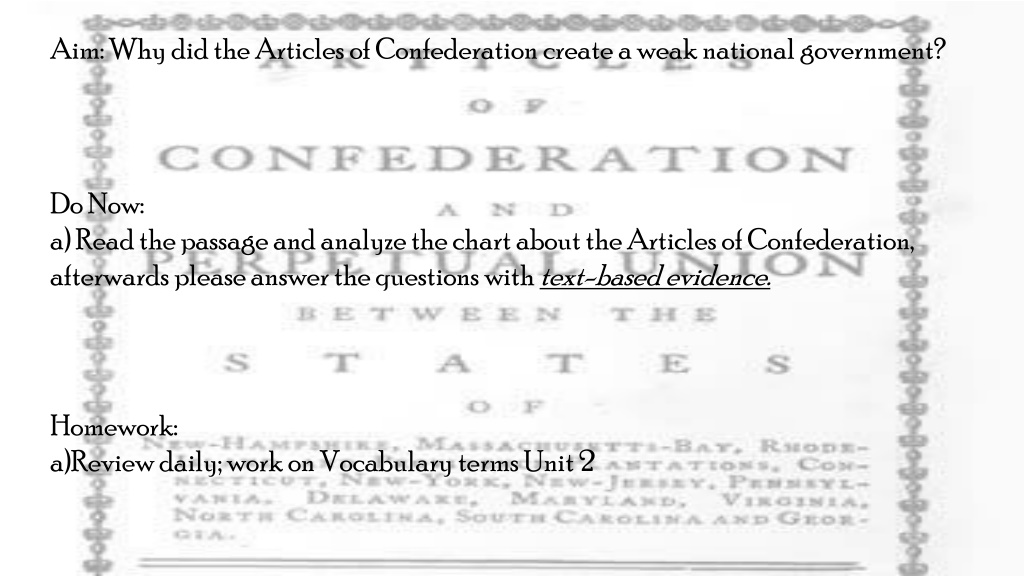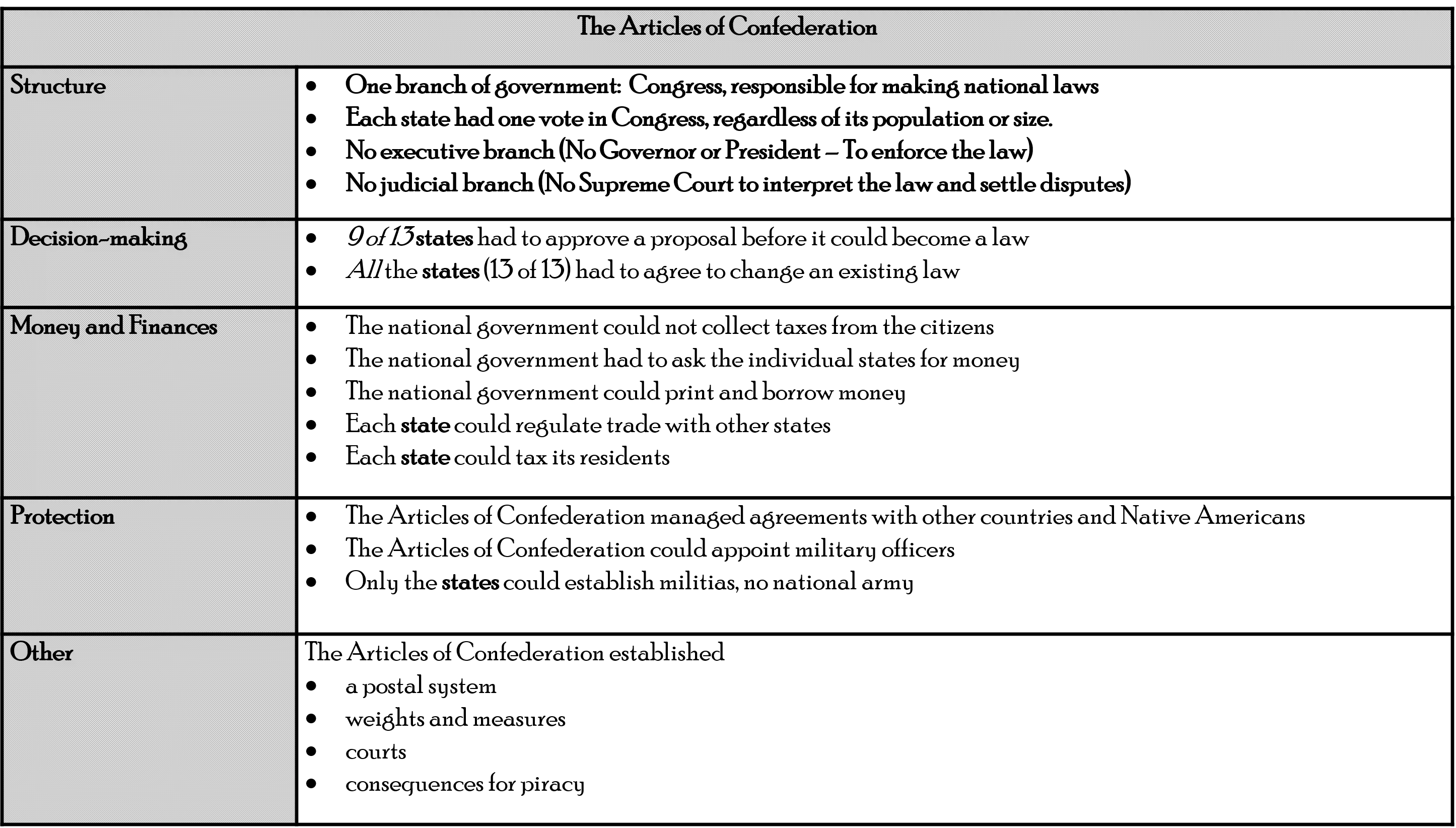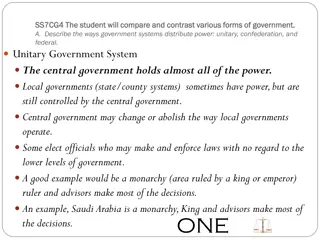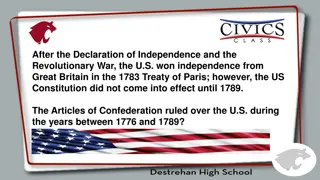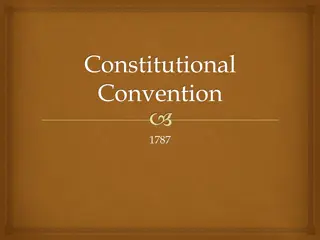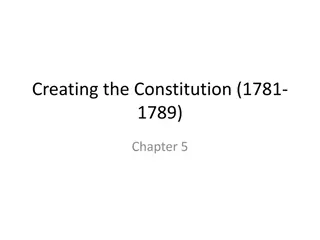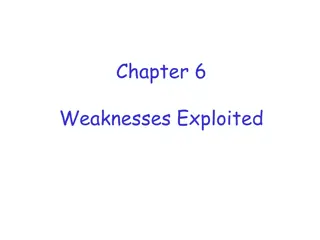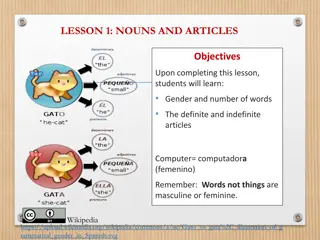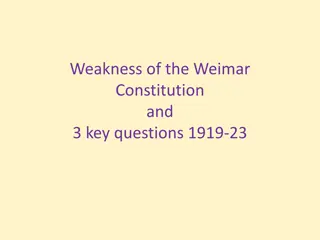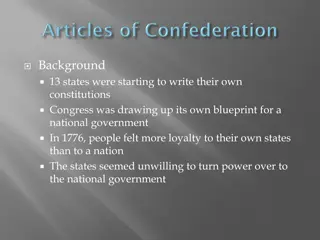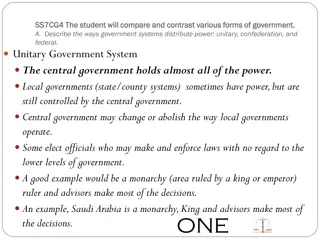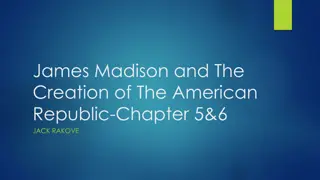Understanding the Weaknesses of the Articles of Confederation
The Articles of Confederation established a weak national government by creating a structure with significant limitations. The central government had no executive or judicial branches, lacked the power to collect taxes, and faced challenges in making decisions and enforcing laws. States held considerable autonomy, which hindered effective governance and led to difficulties in addressing issues such as debt repayment and property disputes. The limitations of the Articles of Confederation illustrate the need for a stronger centralized authority.
Download Presentation

Please find below an Image/Link to download the presentation.
The content on the website is provided AS IS for your information and personal use only. It may not be sold, licensed, or shared on other websites without obtaining consent from the author. Download presentation by click this link. If you encounter any issues during the download, it is possible that the publisher has removed the file from their server.
E N D
Presentation Transcript
Aim: Why did the Articles of Confederation create a weak national government? Do Now: a) Read the passage and analyze the chart about the Articles of Confederation, afterwards please answer the questions with text-based evidence. Homework: a)Review daily; work on Vocabulary terms Unit 2
The Articles of Confederation The Articles of Confederation Structure Structure One branch of government: Congress, responsible for making national laws One branch of government: Congress, responsible for making national laws Each state had one vote in Congress, regardless of its population or size. Each state had one vote in Congress, regardless of its population or size. No executive branch (No Governor or President No executive branch (No Governor or President To enforce the law) No judicial branch (No Supreme Court to interpret the law and settle disputes) No judicial branch (No Supreme Court to interpret the law and settle disputes) To enforce the law) Decision Decision- -making making 9 of 13 states All the states states had to approve a proposal before it could become a law states (13 of 13) had to agree to change an existing law Money and Finances Money and Finances The national government could not collect taxes from the citizens The national government had to ask the individual states for money The national government could print and borrow money Each state state could regulate trade with other states Each state state could tax its residents Protection Protection The Articles of Confederation managed agreements with other countries and Native Americans The Articles of Confederation could appoint military officers Only the states states could establish militias, no national army Other Other The Articles of Confederation established a postal system weights and measures courts consequences for piracy
Case Study: Partner Activity Case Study: Partner Activity Directions: Review each case study with your partner Use the chart of the Articles from today s class and Explain whether the Articles of Confederation could solve this problem (bullet point notes) NOTE: The following situations are NOT 100% accurate that existed after the Revolution, with the Articles of Confederation. NOT 100% accurate, but are similar to those
Case Study: Partner Activity Case Study: Partner Activity Leanne Keene, French ambassador, arrives from Paris to tell you France needs the money it lent the colonies during the Revolution immediately. Can the national government under the Articles of Confederation solve this problem? Why/Why not?
Case Study: Partner Activity Case Study: Partner Activity Neil Thisse is a Loyalist who fled the colonies during the Revolution and has returned to reclaim his property in Dover, MA. According to the Treaty of Paris, he is entitled to his land. However, Massachusetts has passed a law that ignores the claims of former Loyalists. Thisse appeals to the national government under the Articles for the return of his property. Can the national government under the Articles of Confederation solve this problem? Why/Why not?
Case Study: Partner Activity Case Study: Partner Activity A group of poor farmers in Massachusetts, led by Taylor Coutts and John Sullivan is angered by war debts, bad harvests and high taxes. When their debt-ridden farms are taken by the bank, they march on the state capital in protest. Massachusetts sends their militia to try to stop them and appeals to Congress for assistance. Can the national government under the Articles of Confederation solve this problem? Why/Why not?
Case Study: Partner Activity Case Study: Partner Activity Both New Hampshire and New York desire more territory for settlers within their states. New land would increase trade, profit and power for their individual states. They claim Vermont territory and appeal to the Articles to settle the dispute. Can the national government under the Articles of Confederation solve this problem? Why/Why not?
Case Study: Partner Activity Case Study: Partner Activity Foreign countries do not respect American independence. Although the Treaty of Paris granted the United States all the land east of the Mississippi, Britain refuses to withdraw troops from the Ohio Valley. In addition, Spain closes New Orleans port to American farmers. Can the national government under the Articles of Confederation solve this problem? Why/Why not?
Case Study: Partner Activity Case Study: Partner Activity Some individual states have abolished slavery in their constitutions. Confederation delegates Nevin Weinberg and Dani Kwatcher propose an amendment to abolish slavery in the entire country. Can the national government under the Articles of Confederation solve this problem? Why/Why not?
The Critical Period: Creating a National Government The Critical Period: Creating a National Government Articles of Confederation (1781) Articles of Confederation (1781) First Constitution of the United States of America Created a weak weak national government: individual states protected their powers. Reflected colonists fear fear of a strong central government. Why would the colonists be fearful of a strong national government?
Achievements of Articles of Confederation Achievements of Articles of Confederation Treaty of Paris Treaty of Paris (1783): Successfully negotiated the end of the American Revolution and set United States western border at the Mississippi River.
Achievements of Articles of Confederation Achievements of Articles of Confederation Land Ordinance (1785): provided for the surrender of state-claimed lands to the national government for orderly division and sale, as well as, starting the concept of public education public education.
Achievements of Articles of Confederation Achievements of Articles of Confederation Northwest Ordinance (1787): protection of religious of the accused accused (habeas corpus, trial by jury, bail release, and basic due process), and establish a system for the application of statehood statehood. religious freedom, protection of the rights What do you believe was the greatest achievement of the Articles of Confederation? Why?
Weaknesses of Articles of Confederation Weaknesses of Articles of Confederation The national government could do little without the consent of the states No single national currency currency each state had their own money. The national government could not tax tax the people directly. The national government lack the money money to have an army. states. What do you believe was the greatest weakness of the Articles of Confederation? Why?
Apply you knowledge Apply you knowledge Draw a symbol or diagram to represent the Articles of Confederation.
